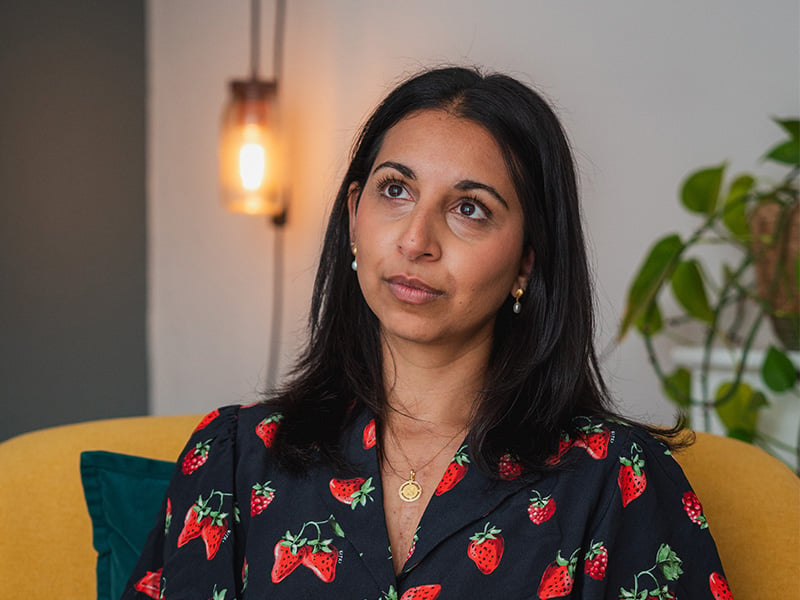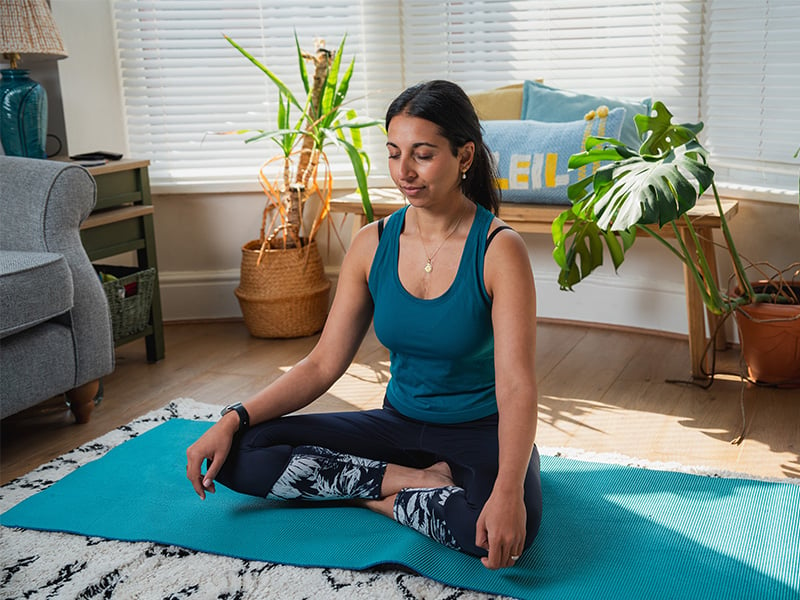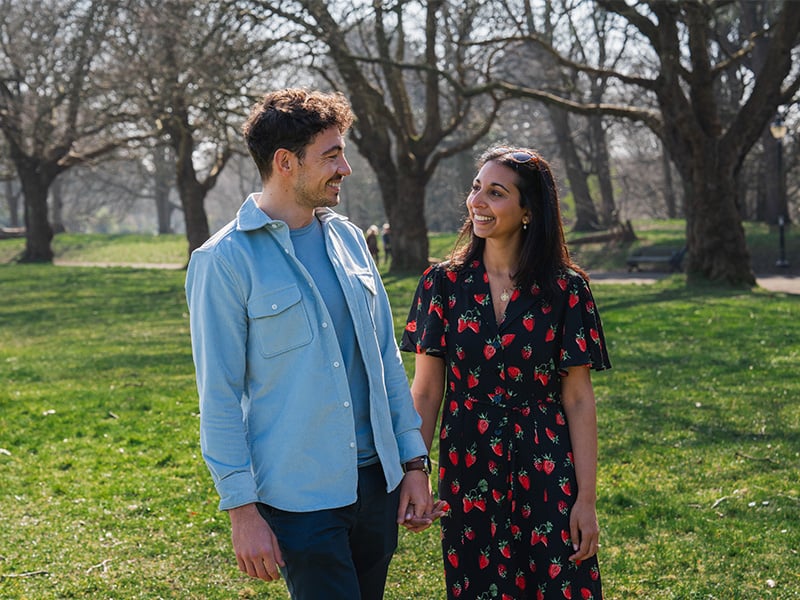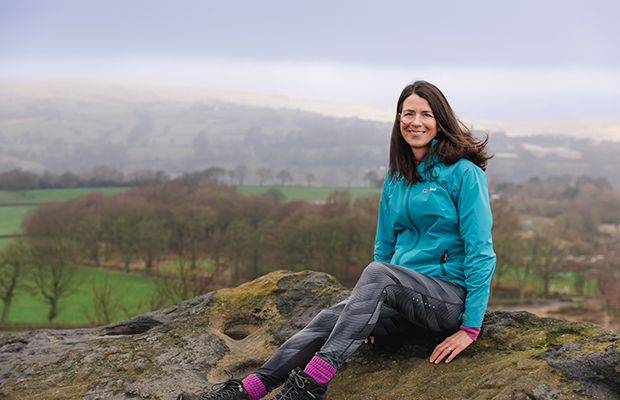“I moved from Newcastle to Liverpool to study to be a doctor and I started having symptoms in my third year of university, when I was 20.
I was getting palpitations every now and again and I was getting a bit out of breath walking up the stairs. And initially I thought, this is a bit odd, but I've got a family history of asthma, so I thought it was probably that.
I booked in with the practice nurse at my GP surgery and because of the palpitations I had an ECG (electrocardiogram) to look at my heart rhythm.
The results came back very abnormal. It showed signs of extensive damage to my heart. That really got the ball rolling.
I had lots of tests in hospital, while doctors tried to work out what was causing the problem.
My heart wasn’t working well. The ejection fraction measures how much oxygen-rich blood your heart can pump out and around your body. Mine was 35 per cent, which meant I had heart failure, and I was getting runs of fast heart rhythms.
Doctors thought I could be at risk of a cardiac arrest, so in 2014 I had an ICD fitted which would shock my heart back to a normal rhythm in case that happened.
Get support with your health and wellbeing
Sign up to our fortnightly Heart Matters newsletter to receive tips on coping with difficult emotions, looking after your health and living well. Joining is free and takes 2 minutes.
I’d like to sign-up
My health went downhill
I was being monitored by the Freeman Hospital in Newcastle, which also has a transplant centre, and over the next few years my heart kept deteriorating.
Yet for some reason my body was able to compensate, and I was still able to continue with my medical training, to go on holiday and do quite a bit of walking.
But by October 2022, when I was 29, things were getting really bad. I had very bad chest pains, pins and needles in my left arm and hand, and I was even struggling to walk.
I was admitted to hospital, and I became very, very poorly. My heart wasn’t working at all well - my ejection fraction went down to 12 per cent.
My lungs were full of fluid and then my kidneys and liver stopped working. I was in a critical condition.
I was transferred straight to the transplant centre in Newcastle and on 31 October I was put on the urgent transplant list.
I was really unwell. I wasn’t walking; I wasn’t eating, and I needed oxygen. I was running out of options. And that’s when I got the offer of a heart.

The transplant was like turning on a switch
The timing was incredible, and the transplant went well. I was awake the next day and then spent a week in intensive care. And then I think 2 or 3 weeks on the ward recovering.
It was literally like a switch clicked and suddenly my body was working again. Suddenly I had energy, I could eat again, I was walking around.
By Christmas Eve I was well enough to be discharged and so I had Christmas Day at home.
At first, my recovery was tricky. Some days I had a lot less energy, and I am a person who likes to be active and busy.
After a transplant you are put on medicine to suppress your immune system, which helps stop your body from rejecting the new organ.
Suddenly my body was working again.
Dealing with the side effects was difficult. I had excess hair growth, and a puffy ‘moon’ face. But I felt guilty worrying about such superficial things when I was so thankful to have a new heart.
For me, one of the hardest things to get through was accepting the fact that someone died for me to get a heart. That's a really difficult thing to process because as a doctor my job is to help people get better.
I had some counselling with a clinical psychologist. She said she thought I had some symptoms in keeping with post-traumatic stress disorder.
I was getting flashbacks and waking in the middle of the night remembering things that had happened.
We were considering some techniques to help but then I did start to feel better. I actually found the best thing was talking about it all and getting it all out into the open. That helped me process it all.

Starting work as a GP
Doctors are still trying to figure out what caused my heart failure. The current theory is that it was 2 genetic conditions, mitochondrial disease and sarcoidosis.
Mitochondrial disease affects the mitochondria, which are the energy-producing ‘powerhouses’ of cells. It can affect the muscle and the structure of the heart.
Sarcoidosis is a rare genetic condition that causes lumps of swollen tissue called granulomas to form in the organs of the body. In my case it caused scarring and damage to my heart.
After my transplant I still had my GP training to finish, so I did about 8 months of that and qualified as a GP in July 2024.
Since then, I've been working full time at the practice I trained at. It’s busy but I find it so rewarding.
When I speak to patients, I know what they're going through.
Because of what I’ve been through, I understand so much better how patients might be feeling. When I speak to patients, I know what they're going through and can empathise when they've got concerns.
For people with heart conditions, they've got all the uncertainty that can come with a chronic disease, and they have worries about the future.
I’m in a unique position being a doctor and a transplant recipient and I think I should use that to help other people.
I met my donor’s family
I wrote to my donor family 3 months after the transplant and just wanted to thank them for such a selfless gift in their worst possible moments and to tell them what it meant to me and my family.
Everything goes through the transplant coordinators to maintain confidentiality and, just before my 1-year transplant anniversary, I had a letter back from my donor’s parents.
It was tough to find out more about the life lost and the family left behind, but I am so grateful my donor’s family allowed me to learn more about what an incredible person their loved one was.
Their gift allowed me to survive, as by the time of my transplant I was very unwell and getting worse.
My donor’s parents were so welcoming and warm towards me and my partner Paul (pictured below). I have also been able to meet my donor’s partner and child, along with 2 school friends, which was really special.
There were so many similarities between us, from our hobbies and interests to our personalities and how we dealt with adversity. I really think in another life we would have got on well and been friends.

Our wedding day will be a chance to say thank you
Paul proposed on the first anniversary of my transplant. It was a special day because we had been thinking about my organ donor, reflecting on the year and all we had achieved.
A year ago, I might not have made it, and here we were, planning our future.
Our wedding is at the end of May and we have both said the wedding will be more of a celebration of the people in our lives and a thank you to everyone who was there for us when I was really poorly.
My parents were really supportive, and Paul’s friends helped him through the difficult times. My friends made a rota to visit me regularly and that was the highlight of my week. I probably couldn't have got through the transplant without them.
I have never felt so well
Now Paul and I go for lots of walks together. We play badminton together every week and I go to yoga at least twice a week. I can't remember the last time I felt so strong, and it’s a really nice feeling.
Before, even if I wanted to get to the shops we would have to drive or factor in half an hour for a 10-minute walk so I could stop and rest. So walking normally is a novelty.
I am feeling the best I've ever felt. I have even been on hiking holidays.
That is life-changing and for someone like me, who was so desperate to do all of those things for years, it just feels amazing that now I can.”
What to read next...










